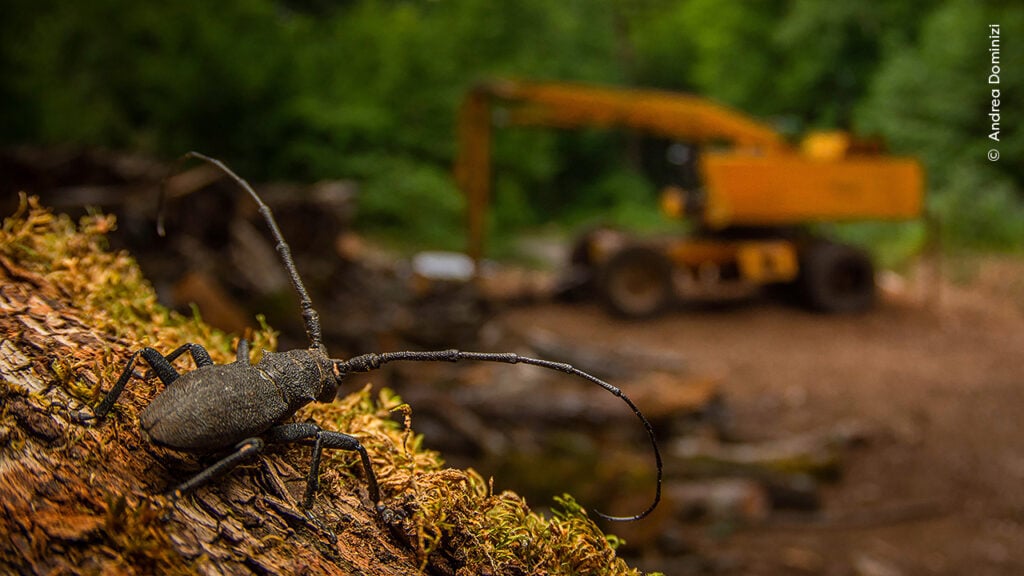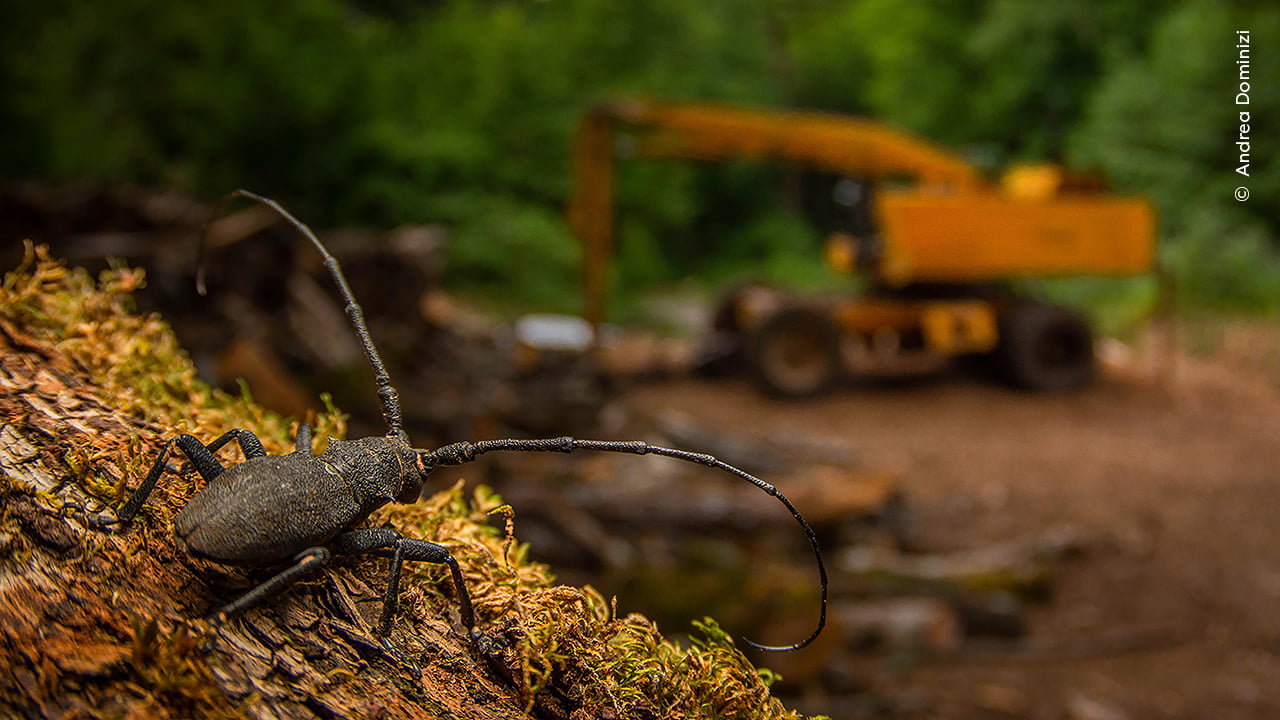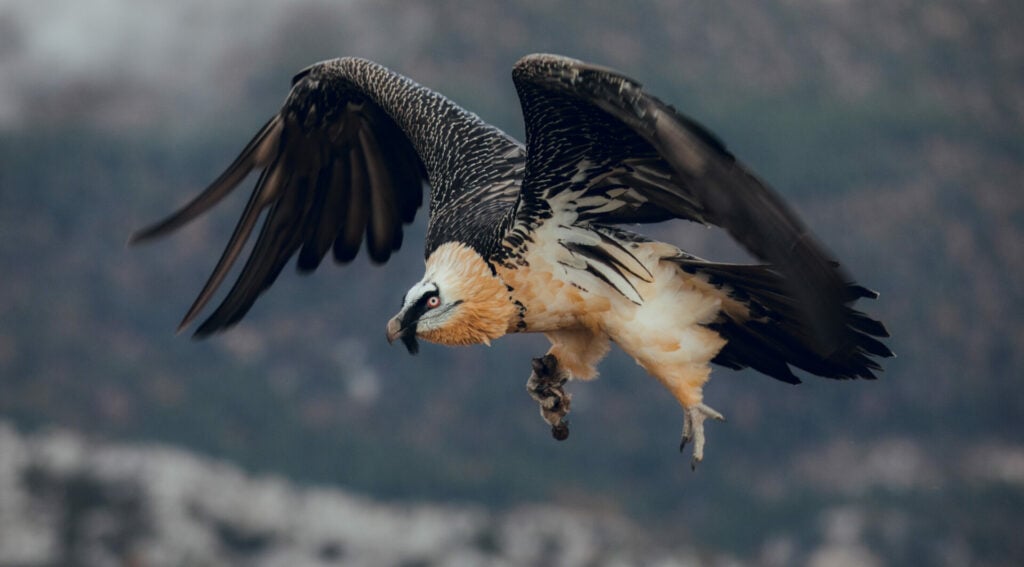A longhorn beetle of the species Morimus asper takes the spotlight in the beautiful image ‘After the Destruction’, the winner of this year’s Young Wildlife Photographer of the Year Award, taken by Andrea Dominizi, from Italy.
It was taken in the Lepini Mountains of central Italy, in an area once logged for old beech trees.
In a frame diagonally split in half, the beetle stands fully focused in the bottom left corner while logging machinery looms in the top right.

The picture tells two stories according to the judges of the Natural History Museum competition. One is of impending natural destruction caused by human intervention, against which the smallest creatures stand no chance. The other is of hope and resilience, the composition cleverly making the insect appear as big as the machinery.
In a poetic twist, he said that its genus name Morimus actually comes from the Greek word meaning ‘destined to die’, which this image so perfectly encapsulates
‘The photographer has given M. asper authority in this image,’ said marine biologist and underwater photographer Jennifer Hayes, one of the judges of this year’s competition. ‘It does exactly what a strong photograph should do – it increases our understanding.’
The museum’s beetle expert Max Barclay explains that this is one of 30,000 species of longhorn beetle that exist around the world. In a poetic twist, he said that its genus name Morimus actually comes from the Greek word meaning ‘destined to die’, which this image so perfectly encapsulates.
It likely got given this name due to its black colour, its association with decaying wood and the fact it can’t fly.









